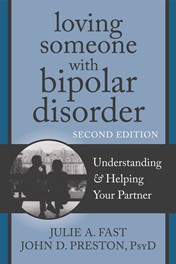I’m going to be honest. My answer is not always easy to hear. Many people want to focus on the psychology of difficult bipolar behavior. He loved me for three years and then suddenly said he never loved me!...
I’m going to be honest. My answer is not always easy to hear. Many people want to focus on the psychology of difficult bipolar behavior.
He loved me for three years and then suddenly said he never loved me! He left almost overnight!
She was my parter. We have a kid! She up and left with a women on the internet she didn’t really know! Does this mean she never loved me?
They loved sex when we first met and now I get pushed away like I’m an abuser or something. It’s tearing me apart. I am dying inside Julie. How was I so blind? Were they just using me?
No one understands this anguish more than myself. I know this from both sides as a person with massive bipolar who was in a long term relationship with someone who has massive bipolar.
The answer to all of the above questions is bipolar. If someone has bipolar and gets manic and leaves, it is from the bipolar. It’s not psychological. There is no hidden meaning.
I don’t believe in psychological explanations for bipolar behavior.
Bipolar is a neurological illness that affects the brain chemicals that control thinking and behavior. This means the person can be in love one minute and out of love the next. It’s frustrating and scary when this happens, but it’s not from someone not being able to face love.
I wrote Loving Someone with Bipolar Disorder to dispel the idea that people with bipolar want to do what they do.
They don’t.
No one wants this illness.
No one with bipolar wants to walk away from a good relationship.
No one with bipolar loves and supports their kids for many years and then gets manic and suddenly disappears and doesn’t contact their kids unless it is bipolar.
This terrible and scary behavior is part of untreated bipolar disorder.
Why can you read Loving and think- how does Julie know so much about my relationship! She doesn’t know me! And yet it’s like she is in the room with us.
It’s because your partner’s behavior you recognize in the book is part of a well documented, ancient, genetic illness.
Bipolar is NOT an excuse for the behavior. The behavior is never ok. Ever. What you experience is very real. It is incredibly painful for you.
This isn’t an excuse, but it is an explanation for the confusing and heartbreaking behavior.
Love is a chemical process.
When the brain chemicals that affect feelings are not functioning in a stable way, this naturally affects feelings of love.
In euphoric mania it creates feelings of ‘love’ that are not love.
This is why I got into relationships in one week and then got married. It doesn’t discount how much I cared for these men eventually, but the start of the relationship was massive euphoric mania.
In dysphoric mania, it creates a removal of love and a change in love where a person says, “I don’t love you and never did.”
This is chemical.
When I eventually left my first husband Dan, I was in a dysphoric, psychotic episode. I met him when I was in a euphoric manic episode.
I met him when I was ill. I left him when I was ill. No one understood what happened until I was diagnosed ten years later.
No one would every say the reason a person with diabetes can’t handle chocolate cake is because the cake scared them in the past.I’m not trying to be sarcastic here. I mean this literally.
No one looks for a psychological explanation for epilepsy.
Bipolar is an illness. The only way to prevent these terrible situations where a partner leaves is management. This is why I wrote Loving.
I want you to have peace. Focus on the bipolar.
Julie
Here is a link to an article from Bp Magazine that shares more about this situation.
If you’re a partner of someone with bipolar disorder and are new to my work, start with Loving Someone with Bipolar Disorder. There is hope and there is help.
Julie













